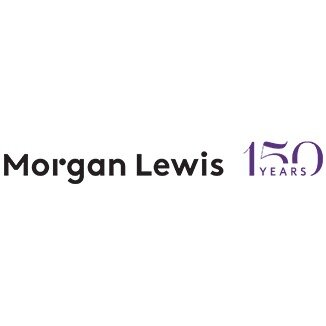Best Nonprofit & Charitable Organizations Lawyers in Chiyoda-ku
Share your needs with us, get contacted by law firms.
Free. Takes 2 min.
List of the best lawyers in Chiyoda-ku, Japan
About Nonprofit & Charitable Organizations Law in Chiyoda-ku, Japan
In Japan, nonprofit and charitable organizations play a crucial role in addressing social issues, providing services, and promoting various causes. Chiyoda-ku, a central ward in Tokyo, is home to many such organizations, given its strategic location and access to governmental and business institutions. Nonprofits in Japan can take several forms, including Nonprofit Organizations (NPOs), Public Interest Corporations, and Foundations, each governed by different sets of regulations. The legal landscape for these entities is shaped by the need to align with transparency, good governance, and accountability standards as they engage in activities benefiting the public good.
Why You May Need a Lawyer
Legal assistance is often required by nonprofit and charitable organizations in Chiyoda-ku for various reasons. Common situations where legal help may be necessary include:
- Forming a new nonprofit entity and ensuring compliance with Japanese laws.
- Drafting and reviewing bylaws and governance structures.
- Navigating the tax-exempt status and filing requirements.
- Handling contracts, leases, and employment agreements.
- Addressing issues of compliance with local and national regulations.
- Resolving disputes with partners, donors, or third parties.
- Managing intellectual property rights for branding and materials.
Local Laws Overview
The regulatory framework for nonprofits in Chiyoda-ku is part of the broader Japanese legal system but also includes specific local ordinances and rules. Key aspects of local laws relevant to nonprofits include:
- The Act on Promotion of Specified Non-profit Activities, which governs the registration and operation of NPOs.
- The Public Interest Incorporated Associations and Foundations Act, which provides guidance on establishing and managing public interest corporations.
- Tax laws that define exemptions and benefits for qualifying nonprofit entities.
- Labor laws applicable to those employed by nonprofits.
- Local ordinances that may impact the operation and activities of nonprofits within Chiyoda-ku, including zoning and public benefit project approvals.
Frequently Asked Questions
What is the process for setting up a Nonprofit Organization in Chiyoda-ku?
The process involves drafting a charter, securing approval from the local government, registering with the relevant authorities, and complying with national and local regulations.
Are there specific requirements for board governance in nonprofit organizations?
Yes, nonprofits must have a defined governance structure, typically consisting of a board of directors responsible for oversight, strategic decision-making, and compliance.
What are the tax implications for nonprofit organizations in Japan?
Nonprofits may be eligible for certain tax exemptions, but they must apply for and maintain their tax-exempt status through regular reporting and compliance with tax regulations.
Can a nonprofit in Japan engage in commercial activities?
Yes, but such activities must align with and support the nonprofit's mission. Profits must be reinvested into the organization’s initiatives.
What steps are involved in obtaining a tax-exempt status?
Organizations must apply to the National Tax Agency and demonstrate that their activities qualify for exemptions under Japanese law.
How can a nonprofit protect its intellectual property in Japan?
This typically involves registering trademarks, copyrights, and patents relevant to the organization’s branding and materials.
What legal documents are essential for nonprofits?
Key documents include the organization's charter, bylaws, financial statements, and records of board meetings and decisions.
How do labor laws affect employees of nonprofit organizations?
The same labor laws apply to nonprofits as to other employers, covering employment contracts, working conditions, and rights.
What are the potential penalties for non-compliance with nonprofit regulations?
Penalties can include fines, loss of tax-exempt status, and other legal actions, depending on the violation's severity.
Can foreign nationals serve as directors of Japanese nonprofits?
Yes, but the organization must ensure compliance with local governance regulations regarding board composition.
Additional Resources
If you're involved with a nonprofit in Chiyoda-ku and need legal guidance, consider reaching out to the following resources:
- The Chiyoda-ku Office, which provides guidelines and registration support for local nonprofit activities.
- The Ministry of Justice, offering detailed information on national laws applicable to nonprofits.
- The National Tax Agency, for information on tax matters relevant to charitable organizations.
- Japan NPO Center, which supports nonprofit activities across the country with resources and advocacy.
Next Steps
To proceed with obtaining legal assistance for your nonprofit or charitable organization in Chiyoda-ku, consider taking these steps:
- Identify specific areas where you need legal guidance.
- Consult with a lawyer specializing in nonprofit law to understand your organization's needs.
- Compile all necessary documents, such as charters, financial statements, and contracts, for a thorough review.
- Schedule a consultation to explore your options and develop a plan for compliance and strategic growth.
Engaging with a knowledgeable attorney can help navigate the complex legal landscape efficiently, ensuring your nonprofit's mission advances without legal obstacles.
Lawzana helps you find the best lawyers and law firms in Chiyoda-ku through a curated and pre-screened list of qualified legal professionals. Our platform offers rankings and detailed profiles of attorneys and law firms, allowing you to compare based on practice areas, including Nonprofit & Charitable Organizations, experience, and client feedback.
Each profile includes a description of the firm's areas of practice, client reviews, team members and partners, year of establishment, spoken languages, office locations, contact information, social media presence, and any published articles or resources. Most firms on our platform speak English and are experienced in both local and international legal matters.
Get a quote from top-rated law firms in Chiyoda-ku, Japan — quickly, securely, and without unnecessary hassle.
Disclaimer:
The information provided on this page is for general informational purposes only and does not constitute legal advice. While we strive to ensure the accuracy and relevance of the content, legal information may change over time, and interpretations of the law can vary. You should always consult with a qualified legal professional for advice specific to your situation.
We disclaim all liability for actions taken or not taken based on the content of this page. If you believe any information is incorrect or outdated, please contact us, and we will review and update it where appropriate.














